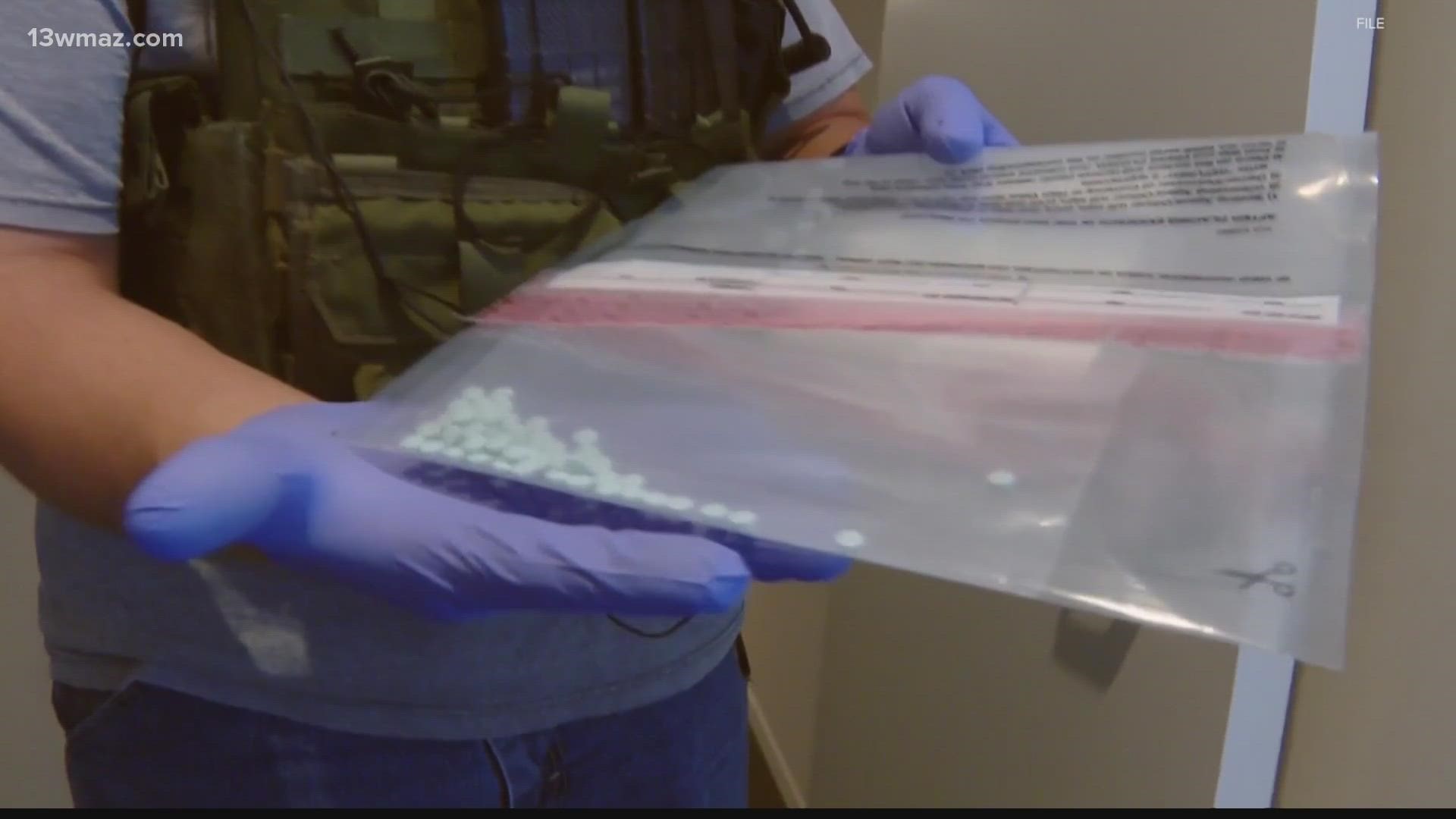MACON, Ga. — Bibb County Coroner Leon Jones reports there have already been six overdose-related deaths in 2023, but Bibb isn't the only county seeing an upward trend.
Like many areas across Georgia, Houston County reports the same. Coroner James Williams suspects eight deaths were overdose-related, but they're still under investigation. He puts the blame on Fentanyl, a strong opioid.
"It's scary to think that 2023 is starting out this way," Williams said.
Williams calls the statistics 'staggering.'
"Looking at the numbers in 2021 versus 2022 in Houston County, it was a 64% increase in overdose deaths," he said.
With 22 deaths in 2021, and 34 last year, Williams says Houston County is above the state average.
"The state average I believe is around 60%, and we came in at 64%," he said. "It's something we fight every day."
Those numbers are deaths alone. Williams says there are many more overdoses where people survive.
"It's a small portion of the number of overdoses that the person survives or is in the hospital," he explained.
Statewide in December alone, there were nearly 1,400 ER visits for drug overdoses. That includes prescription drug overdoses, according to the Georgia Department of Public Health. Macon-Bibb County was among the top five for drug-related ER visits 10 times last year. Laurens County made the list four times.
Houston County did not make the top five, but as of the health department's December report, they reported an increasing overdose rate.
"It's a huge problem. It's not just our agency or our county that's facing these. It's across the state and across the country," Williams said.
He believes the blame lies with Fentanyl, which is lethal even in tiny doses. A lethal dose is two milligrams, which is enough to cover the tip of a pen.
"I think there's so many people out there that just do not realize that," Williams said.
Williams recommends reaching out to law enforcement if you have any information about where people are getting Fentanyl.
If someone you love is struggling with addiction, the CDC recommends simply asking them if you can help. If you're looking for recovery options, you can find a list at the Georgia Behavioral Health Department website.
Coroner Williams says in many cases of overdose deaths, people nearby tried to administer Narcan to overdose victims, but it was too late. The CDC says you can get the life-saving drug at your pharmacy with no prescription. It's easy to use and small enough to carry.
Georgia has a 'Good Samaritan Law' that protects you from liability if you try to administer aid and aren't successful. If you find yourself needing to use it, here are some things to remember:
- Always first dial 911
- Tip the patient's head back and place the tip of the nasal spray in their nostril
- Your fingers should touch their nose
- Firmly press the plunger with your thumb
- Wait two or three minutes for a response
- If there's no response, give additional doses until help arrives

